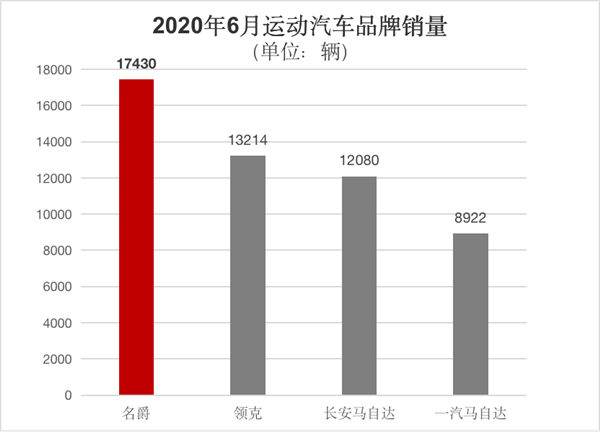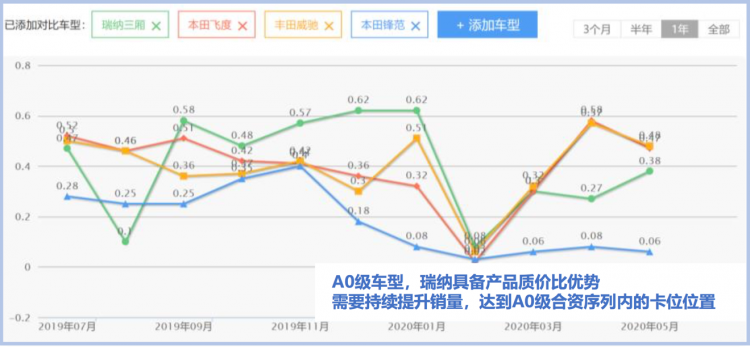A number of industry data show that nearly 80% of the campsites are not profitable at present, and most of the campsites have encountered cold reception in the market, so many people who want to do camping have to slow down and start to rethink: how can we do a good job in camping construction?
The “camp fever” has made many people see the dividends in front of them. The development of camps is gradually becoming more and more similar to homestays and hotels. Many people are even turning the development of camps into a sick business investment behavior: targeting the country The sidelines of the land policy, in disguise, through the bonus of the campsite policy “enclose the land”, to do real estate projects.
![[Industry] Warm service is the added value of camp products](https://img.ucar.run/ecar/11050.jpg)
hot or cold
In addition, under the impact of RV tourism, the development of some camps has become a gimmick to attract attention. There is only the shape of the camp, but there is no content of the camp. For self-driving riders who really want to experience the camp, these “rough” camps can’t even satisfy simple stops, water and electricity. Riders are the best propagandists of RV camps, and this kind of camp experience has made many RVs who want to experience camping no longer use the camp as the first choice for staying supplies. This is contrary to the original intention of camp construction.
In the face of “camping fever”, “cold prescription” is also needed. Camp is an inevitable product of self-driving travel and leisure travel in the era of experience economy, and it is a new choice and new direction for mass tourism. The most important thing to do a good job in camp construction is to slow down the development and do a good job in camp services, so as to meet customer needs and make the camp run more smoothly and better. The key is to provide value-added services with warmth.
There is nothing wrong with this business, but most camp operators will put more energy on the accommodation hardware and turn the camp into a hotel because of the large profits and fast profits of the early accommodation. The author thinks this is wrong. The camp is not a hotel. It provides not only accommodation, but also a life scene. This is a life that integrates into nature, has the personality and atmosphere of local folk culture, and has more leisure experience. Space; this is a living space with stories, emotions and quality. At present, the reason why camping is favored by some young consumers and middle-class family self-driving consumers is precisely because they can enjoy a relaxing, personalized, unrestrained, and home-like vacation experience in the camping. If a campsite only provides accommodation, how is it different from a hotel? And what can be used to balance the needs of guests for campsites, outdoor aesthetics, natural art and spiritual enjoyment?
![[Industry] Warm service is the added value of camp products](https://img.ucar.run/ecar/11051.jpg)
The essence of camping services is to sell off-site leisure and life close to nature. All camp operations are more about human services, a living culture and consumption habits. Therefore, camp services must take “people-oriented” as the first priority. How to be people-oriented?
Generally speaking, most people who like camping will have more emotional and intellectual needs in the camp after getting the opportunity to get close to nature. They will be curious about everything in the camp (especially children), and will take the initiative to communicate and interact with camp operators. , so as to obtain new information and more experiences, and share lifestyles.
people oriented
The so-called “people-oriented” should start from the camp owners. Camp owners can be called the first “guests” of camp services. Only the camp that the camp owner finds satisfactory after his own experience can better serve tourists and attract more tourists to the camp. The definition of camp owners is clearer. They are not only camp operators and managers, but also creators of camp services, interpreters of natural stories, practitioners and experiencers of outdoor life.
The camp scene is one of the directions worth developing. When it comes to scenes, integrating into nature and having its own characteristics is what the camp should pursue. Under the upsurge of campsite construction, the phenomenon of homogenization is unavoidable. How to stick to the original intention and have its own characteristics in this tide is a problem that all campsites must face. Many camps pursue large and comprehensive, foreign-style genes, but lack the due small and beautiful, local culture. If things go on like this, one side of a thousand camps may gradually lose the sense of belonging and freshness that customers have for the camp.
![[Industry] Warm service is the added value of camp products](https://img.ucar.run/ecar/11052.jpg)
The camp scene is an outdoor aesthetic, a natural art, and more importantly, an emotional service. Emotions cannot be replicated. If you focus on the camp scenes and put enough effort into one or two unique life scenes to make them unique, the problem of homogenization of the camps will be easily solved.
Adjust the “temperature”
Compared with the standardized services of star hotels, the camp is warm and casual, with a more homely atmosphere. At present, the design of the campsite and the soft decoration design of the accommodation unit in the camp accommodation is a difficult point and a hot spot. At a time when the popularization of camping culture is still in its infancy, camp owners need to think about their accommodation “sense of design” and service quality. Therefore, camp accommodation should not only “look beautiful”, but also allow people to experience “comfortable living”.
Another problem that makes the camp “distressed” is “standard and non-standard” camp services. The current camp format is definitely non-standard. Although the “non-standard” service lacks a stylized sense of distance, there may also be deficiencies and irregularities. How to control such a service gap and provide warm service to every guest? In fact, camp stewards and risk monitoring can solve this problem.
Beijing Sunshine Valley Camp Park is equipped with such a service—the camp park’s own standard service: from before the “Gumin” checks in to leaving, the camp housekeeper walks through seven links, and each link is subdivided into different terms. For example, in the first step after the order is generated, the camp park steward must do 6 things, namely confirm the order, confirm twice, push basic information (weather, traffic, etc.), check the accommodation unit, and prepare personalized items And go out to greet. These steps ensure that the communication is sufficient in advance, and the detailed information of the guests is mastered to provide personalized service.
![[Industry] Warm service is the added value of camp products](https://img.ucar.run/ecar/11053.jpg)
Standardized camp SOP can standardize the skills of camp housekeepers, but the service that can truly satisfy guests must be that every staff member has a heart of caring for guests. The camp stewards in Sunshine Valley have contact with guests at least three times a day, breakfast, afternoon tea and dinner. When getting along, the butler will pay attention to the changes in the mood of the guests, meet the needs of the guests in a timely manner, and insist on providing warm services.
Enhanced linkage
Under the background of the new era, camps are both destinations and distribution centers. Therefore, a good article on “Camp +” has practical significance for improving the added value of camp services. It is necessary to extend the space, service and operation “beyond the camp”, that is, to expand the life style of the camp and lengthen the industrial chain of the camp. Enhance tourist experience and participation, let consumers “pay” for the in-depth experience, thereby driving comprehensive consumption. And make full use of the location and resource advantages of the camp, integrate and develop with the surrounding tourism industry and other resources, form a “symbiosis effect”, create a new way of tourism experience, provide a larger tourism living space, and jointly build a new Destination and distribution center for tourism, vacation and even sojourn. Only in this way can we do a good job in camp services, provide sufficient service experience, and enjoy the leisure time of tourists on small natural holidays and even tourism Golden Week.
The camp is a slow life of being close to nature, returning to nature, and yearning for freedom. It is the carrier of outdoor aesthetics and natural art activities. The camp creates a new experience of living in the scenery for tourists with its unique design, “moisturizing and silent” service and creative outdoor scenes; it interprets the core concept of camp service with heart – camp is a kind of life It is a way for people to get rid of the pressure of the city and enjoy the gifts of nature with relatives and friends.




